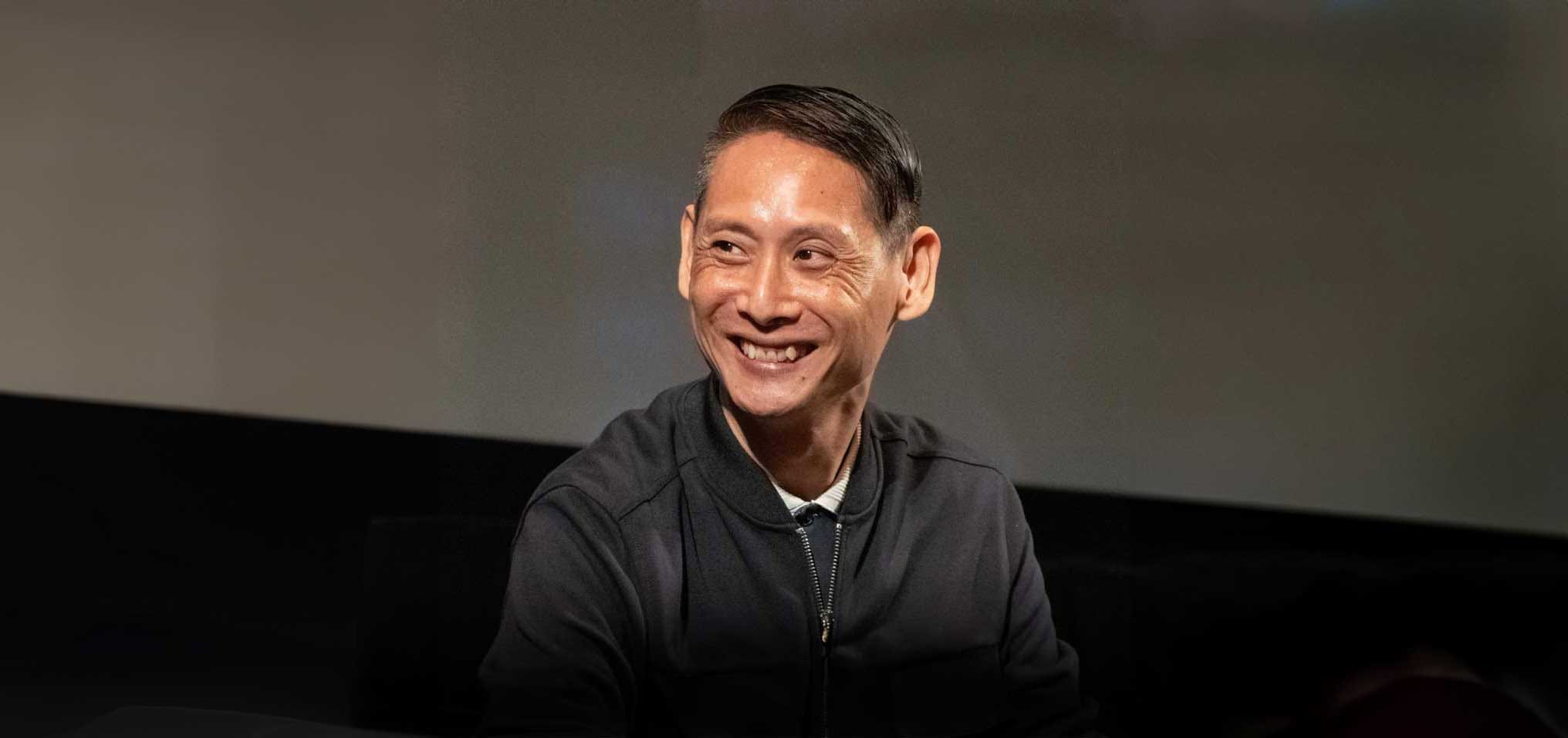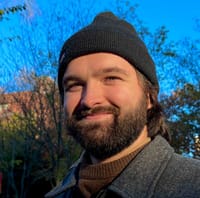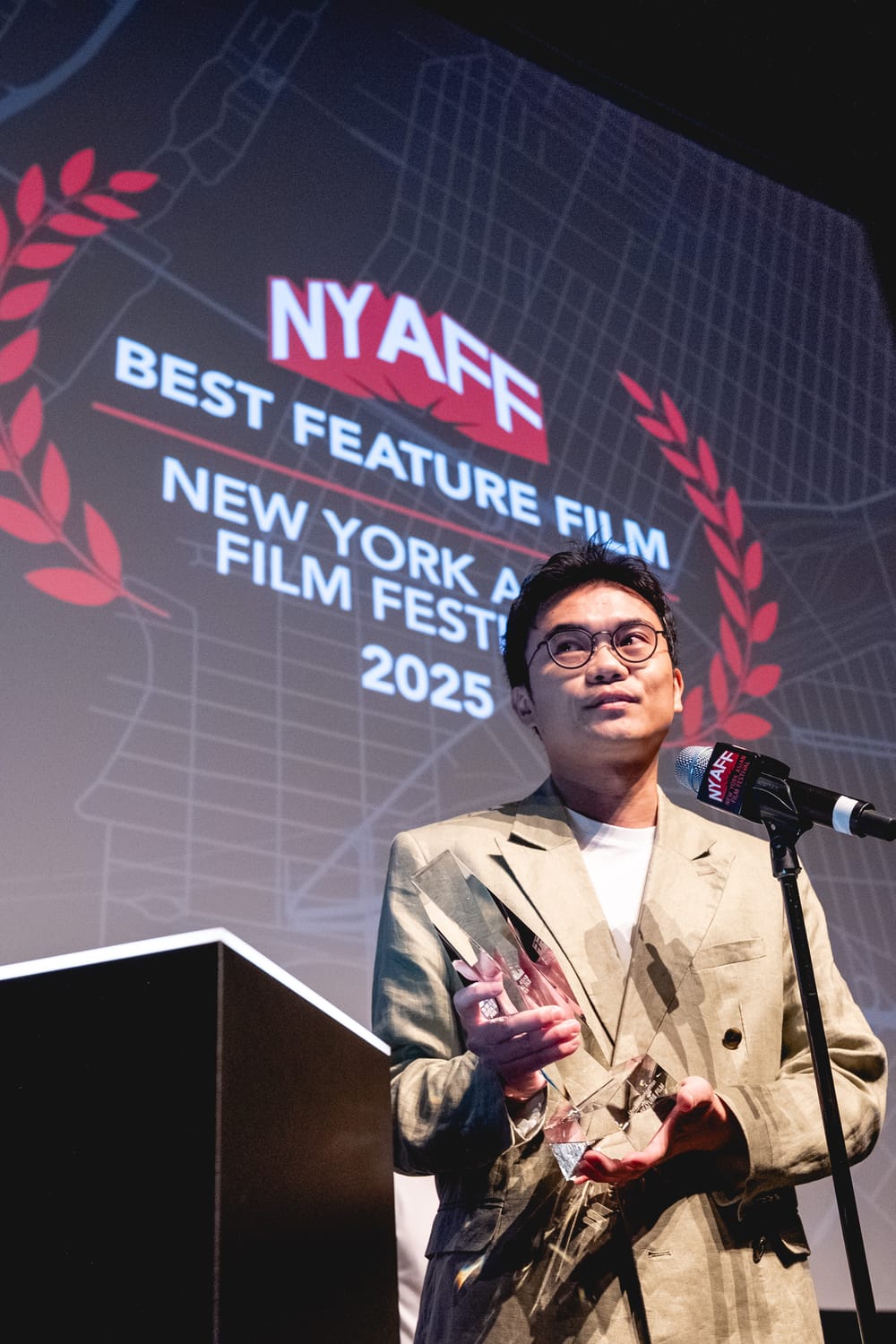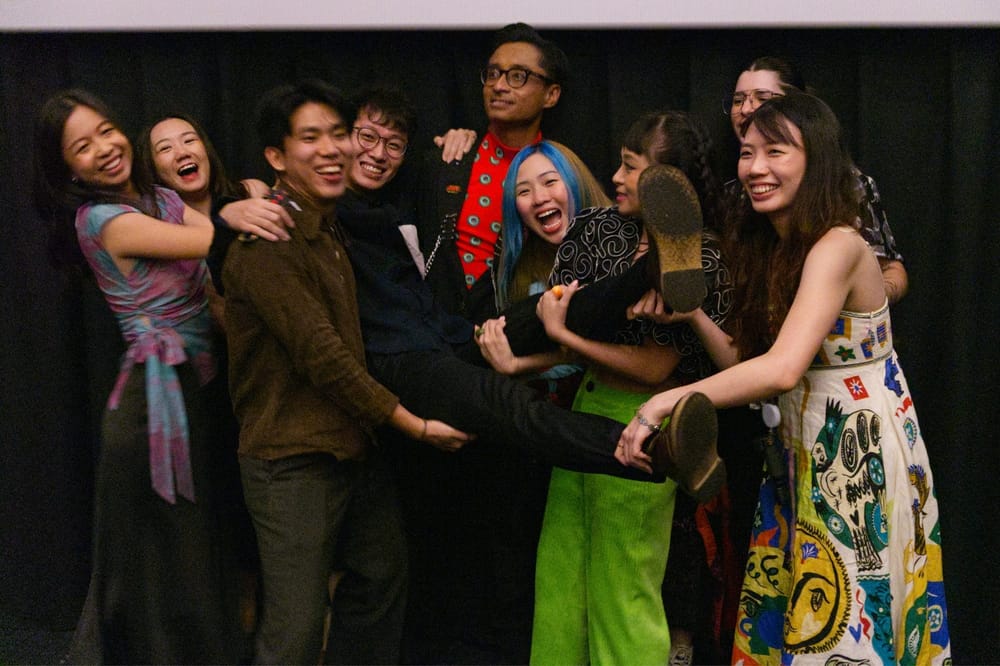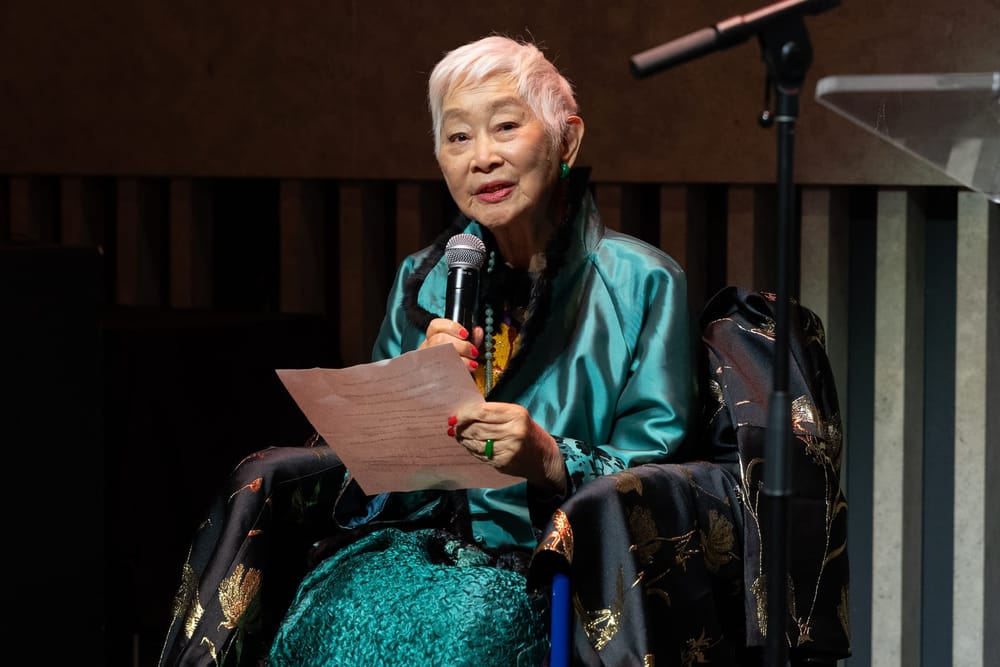By Dylan Foley
Continuing a series of films examining the discriminatory legal and social practices afflicting those on the margins of Malaysian society, writer-director Jin Ong pierces a tragic nerve through a fateful fraternal bond in his latest social drama, "Abang Adik."
The film explores the volatile relationship of two undocumented brothers, Abang and Adi (played by Wu Kang-ren and Jack Tan), who struggle to navigate through the bureaucratic hurdles precluding them from obtaining citizenship because they’re either too busy trying to stay afloat juggling a host of odd jobs or getting caught up in lucrative border-crossing schemes.
Ong uses the duo to gauge the overlapping psychological toll of statelessness and poverty, tapping into a cinematic vein of people circumscribed by intentionally arbitrary regulations. The brothers breathe the same poisonous air that circulates through films like Akira Kurosawa’s "Ikiru" and Frederick Wiseman’s "Welfare"; beleaguered by streams of red tape, their hopes to attain stable employment are repeatedly dashed by goalposts whose positions seem to be in constant flux.
A veteran producer who’s worked on films like Shuttle Life and Miss Andy (NYAFF 2020), Ong moved to the director’s chair for Abang Adik and has since won the top prize at Udine Far East Film Festival (Golden Mulberry) and the Uncaged Award at the 22nd New York Asian Film Festival.
This interview has been condensed for clarity and was conducted through an interpreter.
Dylan Foley: You've produced films about social issues in Kuala Lumpur before, like Shuttle Life and Miss Andy. How did the idea for Abang Adik in particular form?
Jin Ong: I’ve always been concerned with the social issues happening in Malaysia because it’s the place where I grew up. Shuttle Life talks about the poverty issue, Miss Andy is about transgender people in Malaysian society, and with Abang Adik we’re talking about identity. But these kinds of things in my stories are the background, the overriding element I focus on is the humanity that prevails under drastic circumstances. In my family, I'm the only son. I have sister, sister, sister, sister, sister. So, I always wanted to have a younger brother. And I’m not really struggling like Abang and Adi, but I care about people who are living on the margins because even if this issue is specific to Malaysia, there are different versions of it happening everywhere.
DF: You've said in previous interviews that you don't consider the role of producer that different from the director, but there are some stunning performances in this film so I wanted to know more about your approach to interacting with the actors on-set.
JO: When we were preparing, the only thing we needed to work on together was the sign language because it’s totally different in Malaysia and Taiwan. So when Wu first came to Malaysia we started learning the local dialect and our teacher shared a few different types of sign language that we could have at our disposal. For example, the motions and details of the hand signs change based on one’s level of education so there are many different ways to say even the most simple ideas. Do you know how many ways there are to say thank you? The sign language almost killed me, you know, but luckily Wu picked it up very quickly. And Jack, he’s my muse. We started together with Shuttle Life and Miss Andy so he’s always been with me. Since he’s Malaysian I know how he acts, when I was designing the character, it was based on his own personality and I just fit him into the character. As a director, I kept my heart open and wanted to listen to everything. Like, when I was a producer before, you know how the producer is always like, “I am the producer. We will do what I say,” as a director I was a little more relaxed, “It's okay. Everyone can make comments.” As long as it’s correct at least, and if it's good for the project.
DF: There's a very intimate tenderness between Abang and Adi throughout the film that sometimes borders on romantic but never fully crosses that line. Was the portrayal of this relationship as platonic something that had to do with your previous experiences with censorship of LGBTQ material in Malaysia?
JO: From the very beginning, that line was on my mind. When my first draft of the script was done, I asked Xinjie (Lee) and my other producers what they thought and they said it crossed the line. But I disagreed. They (Abang and Adi) don't have other family members, it’s just the two of them. The title Abang Adik is Bahasa Malay and in Bahasa, Abang means elder brother, whereas Adik is younger brother. But when you put Abang and Adik together, it just means brother. They are each other’s worlds. Actually, in the original script, when they sleep, Adi always hugs his brother. I shot that but couldn’t put it in because it was too obvious. I wanted the audience to have some space to think about it. And there were other things I didn’t shoot that I like leaving to the imagination. Maybe they bathe together? Who knows. But for them, that kind of thing is normal. And if you think they are, yeah, if not, that’s fine too. I like leaving that up to the audience.
DF: Speaking of censorship, the story is about undocumented workers, and it heavily criticizes the types of bureaucratic obstacles they have to go through in order to obtain citizenship. Do you anticipate there being similar censorship for this film?
JO: In Malaysia? Of course. Before we submit the film to the censor boards we already know what they’ll approve and what they won’t. I cut out the sex scenes, the scene of the police smoking (because they say it’s bad for their image), and also the part when the police are bribed after they raid the building. They say kissing scenes will make people think about wanting to have sex, but those are still allowed in foreign Hollywood films. So we have to follow the rules. Either you take it or leave it. That’s why we have to get the funding from outside (Taiwan Golden Horse Film Project Market), but are still able to do production in Malaysia. As long as it doesn’t get released in Malaysia, it’s fine. My friends are always complaining, “Come on, you’re doing a film in Malaysia and you bring it everywhere else but we can’t watch it?” The thing I was quite worried about was the death sentence that forms a large part of the film. Because when we were doing the survey, the government department advised me not to do it. They were afraid that the censors wouldn’t allow it. And if they didn’t allow that then I would have needed to cut a lot, so we were brave and said, “Ok, let’s at least try.” But actually, this year in Malaysia—the government has wanted to abolish the death sentence for years—but this year they actually had some changes in the laws and abolished some of the automatic death sentences that were attached to certain types of crime. That’s why it was okay to have it in the film.
DF: I wanted to ask in particular about this scene where Abang is delivering a monologue to the Buddhist monk who visits him in prison because it all happens in one unbroken take. How long did it take you to shoot that scene?
JO: We needed to rehearse a lot for that. And you know why? Because the man was a real monk. But since we had a rehearsal, when we were on set it went by very fast. Because of the nature of the scene, we couldn’t do many takes, so we ended up only needing three. We also did some rehearsals for the last meeting between Abang and Adik. We actually had some spoken dialogue in that scene at first, but after the first time we rehearsed it, we thought it was more powerful to make it silent and only use sign language. And the day we shot that scene, after I said cut, Jack couldn’t control himself and he was just crying like hell. Everyone was silent for the take and then when I said cut, I looked around and saw my whole crew crying. Just crying. [laughs] Honestly, my intention wasn’t to make people cry!
DF: And the gesture of them cracking the boiled eggs on each other’s foreheads? Where did that originate?
JO: The egg? Because I also do that [laughs]. When we were in primary school, I would do that with my friend.
For me, the boiled egg is something that’s not so expensive, but if you're hungry and you eat it, it’ll last a long time in terms of hunger. But I think it’s also something that belongs to them. It’s how they communicate. The egg and the way they do it is just something that belongs to these brothers…actually, it’s quite painful. You should try it. You need some technique, you know? [laughs].


